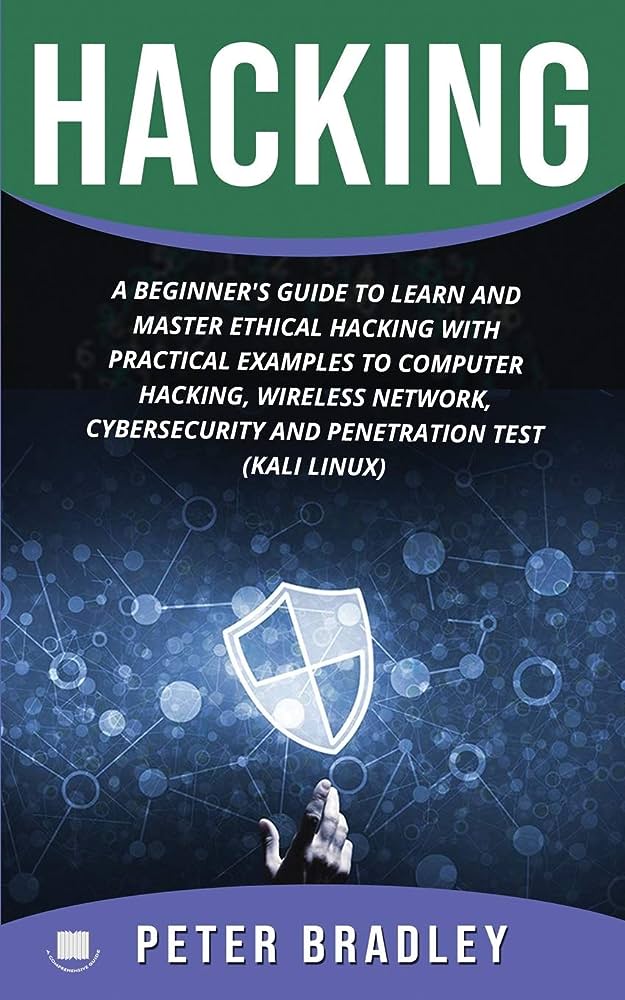
Guide to Ethical Hacking And Penetration Testing: Master the Art
A guide to ethical hacking and penetration testing helps individuals gain knowledge and skills for identifying and fixing vulnerabilities in computer systems. Ethical hacking is the practice of assessing an organization’s security systems, while penetration testing involves simulating real-world attacks to evaluate the effectiveness of security measures.
By understanding these concepts in a practical context, individuals can contribute to enhancing cybersecurity and protecting against unauthorized access. This guide provides essential insights and techniques to ensure ethical hacking and penetration testing are conducted in a responsible and lawful manner.
It outlines the importance of obtaining proper authorization, maintaining confidentiality, and adhering to ethical guidelines. By following this guide, professionals can master the art of ethical hacking and become invaluable assets in safeguarding digital environments.

Credit: virtualization.network
What Is Ethical Hacking?
Ethical hacking plays a vital role in the field of cybersecurity. It involves the authorized and controlled attempt to exploit vulnerabilities in computer systems to identify potential threats. By discovering vulnerabilities through controlled testing, ethical hackers can assist organizations in strengthening their security defenses and preventing cyber attacks.
Ethical hacking follows a code of ethics and operates within legal boundaries. This practice aims to ensure that networks, systems, and data are secure from unauthorized access or malicious activities. Organizations rely on ethical hacking to proactively identify weaknesses and to take preemptive measures to protect their valuable assets.
As hackers become more advanced, ethical hacking is crucial for staying one step ahead and ensuring the safety of sensitive information. It is essential for businesses and individuals to understand the concept and importance of ethical hacking in today’s rapidly evolving cybersecurity landscape.
The Role Of Penetration Testing
Penetration testing plays a crucial role in ensuring the security of a system or network. It involves simulating real-world attacks to identify vulnerabilities and weaknesses that could be exploited by malicious individuals. Unlike ethical hacking, which is done with the intention of improving security, penetration testing is focused solely on finding flaws.
By conducting penetration tests, organizations can proactively detect vulnerabilities and fix them before an actual cyberattack occurs. This helps in preventing potential breaches and safeguarding sensitive data. Moreover, penetration testing provides valuable insights into security loopholes, allowing companies to implement necessary measures to strengthen their defenses.
Overall, understanding the importance of penetration testing is essential for maintaining a secure and resilient digital infrastructure.
Getting Started With Ethical Hacking
Getting started with ethical hacking requires essential skills and knowledge, along with a virtual lab environment for practice. As an ethical hacker, one must familiarize themselves with common tools and resources that can aid in penetration testing. By setting up a virtual lab, individuals can create a safe and controlled environment to practice their hacking skills without causing any harm.
This is crucial for gaining hands-on experience and understanding the vulnerabilities that exist in various systems. Additionally, ethical hackers should be well-versed in the tools and resources commonly used in the field, such as network scanners, vulnerability scanners, and password crackers.
These tools help identify potential security weaknesses that can be exploited ethically to enhance system security. Remember, ethical hacking requires continuous learning and staying updated with the latest techniques and technologies to effectively mitigate security risks.
Understanding The Phases Of Ethical Hacking
Ethical hacking and penetration testing, also known as white hat hacking, is a crucial practice in today’s digital world. Understanding the phases of ethical hacking is essential for a successful penetration test. The first phase is reconnaissance. During this step, information about the target is gathered, such as ip addresses and domain names.
The next phase is scanning, which involves identifying open ports and services on the target’s network. Exploitation is the third phase, where vulnerabilities are exploited to gain unauthorized access. Once access is gained, the hacker moves on to maintaining access, leaving behind backdoors for persistent access.
The final phase is covering tracks, where all evidence of the intrusion is removed. By following these phases, ethical hackers can help organizations identify and fix security loopholes before they can be exploited by malicious hackers.
Methodologies And Techniques In Ethical Hacking
Ethical hacking and penetration testing involve various methodologies and techniques that are aimed at ensuring the security of computer systems and networks. One such technique is social engineering, which involves manipulating human behavior to gain access to sensitive information. Another important aspect is network hacking, where vulnerabilities in network infrastructure are exploited.
In addition, web application testing helps in identifying security flaws in web applications, ensuring their robustness. Wireless hacking focuses on attacking wireless networks and devices, aiming to find vulnerabilities and strengthen security measures. Cryptography and password cracking are also vital, as they involve breaking encryption algorithms to enhance overall security.
These techniques work together to create a comprehensive approach to ethical hacking and penetration testing, enabling organizations to safeguard their digital assets against potential threats.
Legal And Ethical Considerations In Ethical Hacking
Legal and ethical considerations play a crucial role in the world of ethical hacking. Understanding the laws and regulations that govern ethical hacking is essential. A professional ethical hacker carries ethical responsibilities while performing their duties. Obtaining proper authorization is necessary before engaging in any penetration testing activities.
This ensures that the hacker operates within the boundaries defined by the law. By upholding legal and ethical principles, ethical hackers can contribute positively to enhancing cybersecurity. They help organizations identify vulnerabilities and strengthen their defenses against potential cyber threats.
In doing so, they protect sensitive information and ensure the integrity of digital systems. Adhering to legal and ethical guidelines is not only a professional obligation but also an ethical one. It ensures that ethical hacking is conducted in a responsible and accountable manner, benefiting both businesses and individuals.
Real-World Examples Of Ethical Hacking
Ethical hacking has become an essential component in securing systems against cyber threats. Real-world examples of successful ethical hacking engagements highlight its impact. These case studies provide valuable insights into the vulnerabilities that exist within systems and how they can be exploited.
By conducting controlled and authorized hacking activities, companies and organizations can identify weaknesses in their security measures and take necessary steps to address them. Lessons learned from ethical hacking incidents serve as valuable knowledge for developing stronger defenses against malicious hackers.
Through proactive penetration testing, businesses can better protect sensitive data and prevent potential cyber attacks. Ethical hacking has emerged as a vital tool in the fight against cybercrime, helping to safeguard both the organizations and their clients.
The Future Of Ethical Hacking And Penetration Testing
The future of ethical hacking and penetration testing is marked by emerging trends and technologies that require continuous learning and staying updated. As the digital landscape evolves, professionals in this field must adapt to new challenges and exploit vulnerabilities for the greater good.
Ethical hackers play a critical role in securing organizations by identifying potential weaknesses and strengthening network defenses. From iot devices to cloud-based systems, the scope of ethical hacking continues to expand. To thrive in this dynamic industry, individuals can pursue career opportunities and obtain professional certifications.
With the right skills and expertise, ethical hackers can enjoy a rewarding and lucrative career, making a tangible impact in the fight against cybercrime. Keeping up with the latest advancements ensures that ethical hackers are well-equipped to protect sensitive data and safeguard against malicious attacks.
Conclusion
Through this comprehensive guide, we have delved into the intriguing world of ethical hacking and penetration testing. We explored the importance of ethical hacking in today’s technology-driven society, emphasizing the need for organizations to secure their systems and protect sensitive data from potential cyber threats.
By understanding the ethical hacking process, we can better identify vulnerabilities in our own systems and take proactive measures to prevent potential attacks. Additionally, we discussed the role of penetration testing in determining system security and ensuring robust defenses against hackers.
Remember, ethical hacking and penetration testing are continuous processes that require lifelong learning and adaptation. As technology evolves, so do the tactics employed by hackers. By staying informed and implementing ethical hacking and penetration testing practices, we can safeguard our digital assets and maintain a secure online presence.
With the right strategies and tools, we can confidently navigate the digital landscape, ensuring a safer and more secure cyber world for all.
